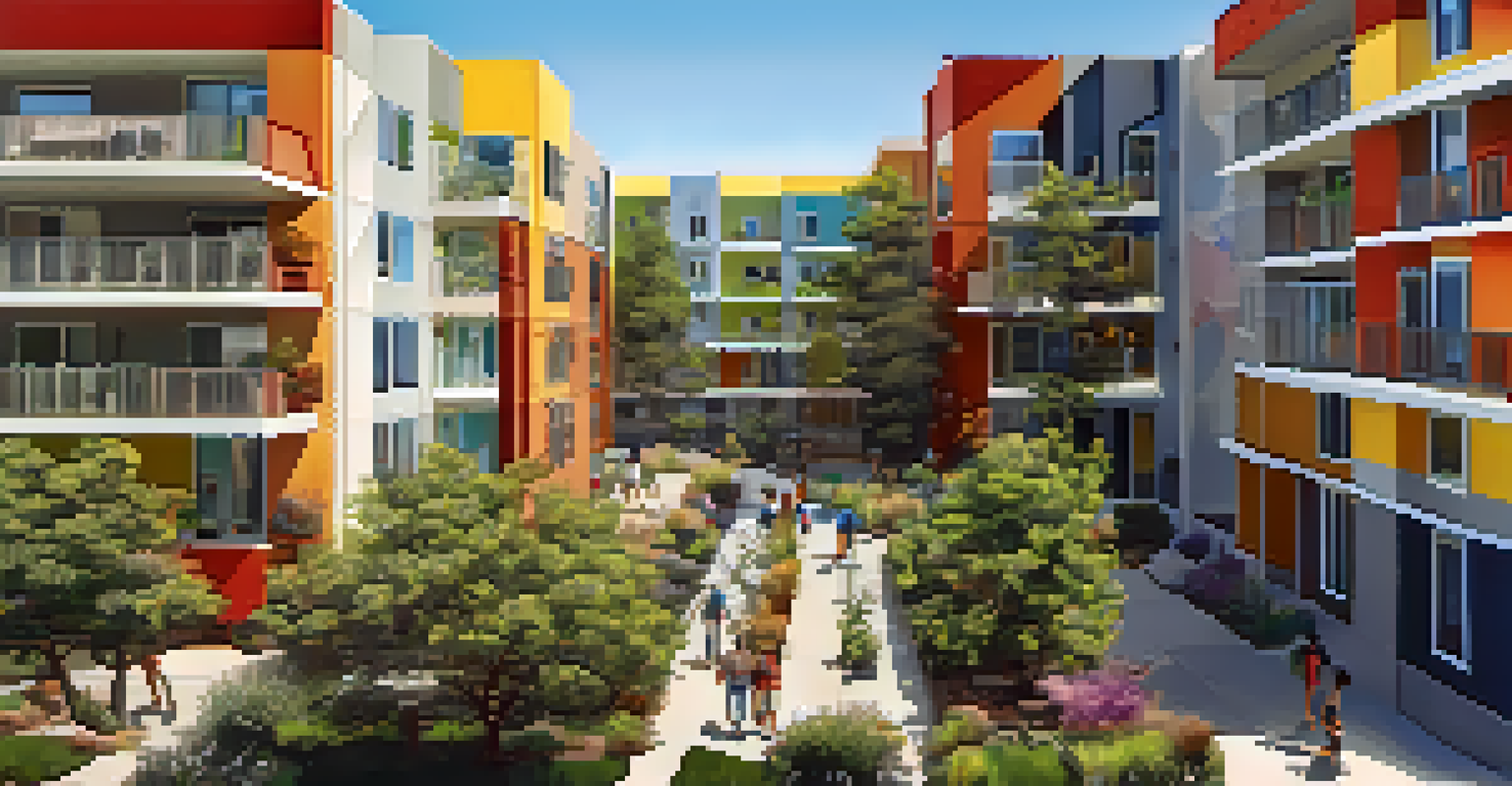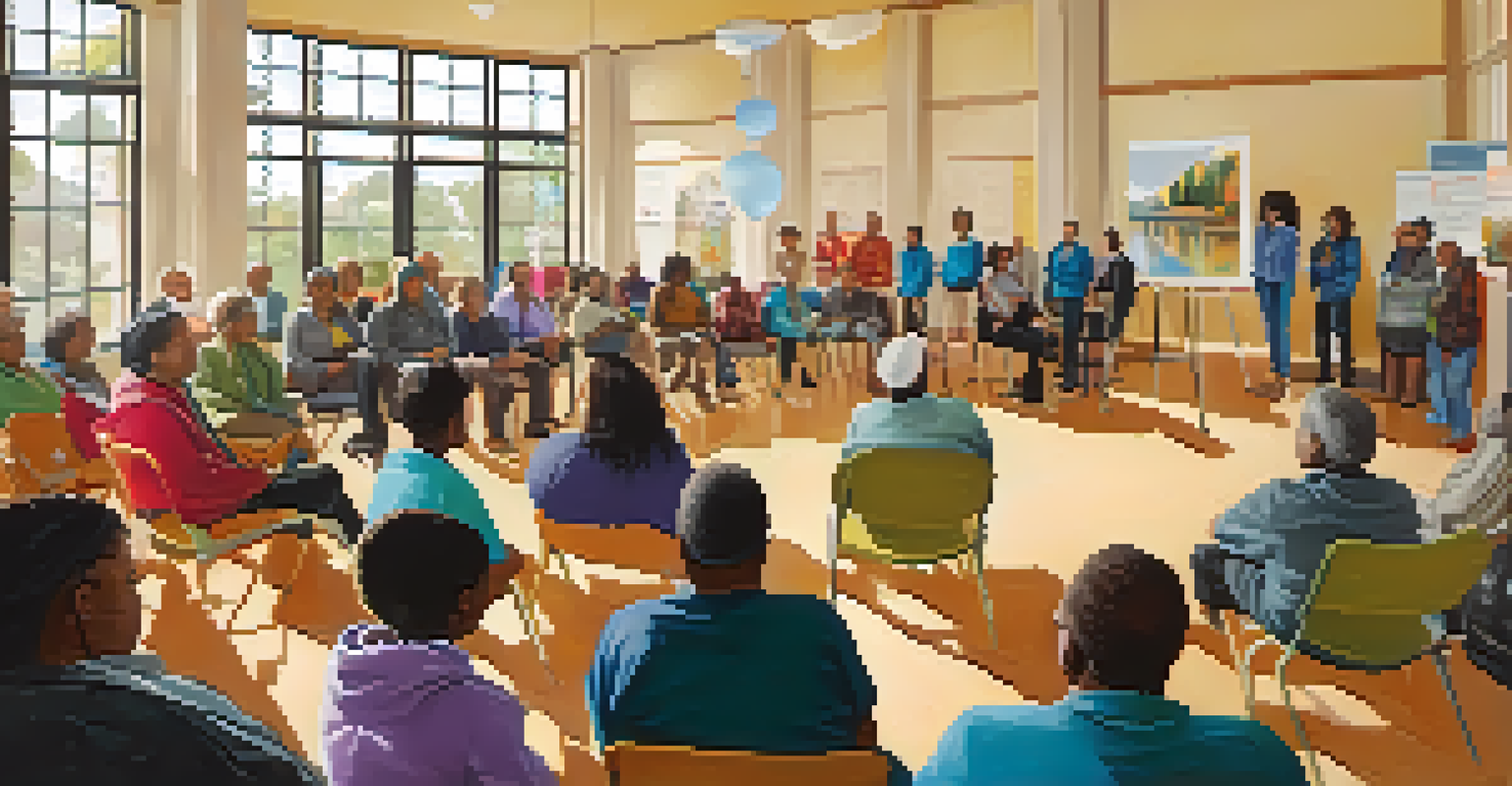Understanding Affordable Housing: A Guide for San Jose Residents

What is Affordable Housing and Why It Matters
Affordable housing refers to housing that is affordable to individuals and families with low to moderate incomes. This concept is crucial in cities like San Jose, where the cost of living can be quite high. By ensuring that housing is affordable, communities can maintain diversity and prevent displacement of long-time residents.
Housing is absolutely essential to human flourishing. Without stable shelter, it all falls apart.
Understanding affordable housing is not just about the price; it also encompasses the quality of the living conditions. Well-designed affordable housing can provide safe, stable environments for families, contributing to their overall well-being. When people have a secure place to live, they can focus on other important aspects of life, like education and employment.
Moreover, affordable housing can enhance community cohesion. When residents from diverse backgrounds live in close proximity, they can share resources, support one another, and form stronger neighborhoods. This diversity enriches the community and creates a vibrant cultural tapestry.
Types of Affordable Housing Available in San Jose
In San Jose, affordable housing comes in various forms, including public housing, subsidized housing, and inclusionary zoning developments. Public housing is owned by government entities and is specifically designed for low-income families. On the other hand, subsidized housing often involves private landlords who receive government assistance to keep rents affordable.

Inclusionary zoning is an interesting concept where developers are required to include a certain percentage of affordable units in new housing projects. This approach helps integrate affordable options into the broader housing market, ensuring that new developments benefit everyone. Each type of housing has its unique application processes and eligibility criteria, making it essential to understand your options.
Affordable Housing Supports Diversity
Affordable housing helps maintain community diversity and prevents the displacement of long-time residents.
Additionally, there are nonprofit organizations and community land trusts that aim to create and maintain affordable housing. These organizations often focus on long-term affordability, ensuring that housing remains accessible to future generations. By exploring these options, residents can identify the best fit for their needs.
Eligibility Criteria for Affordable Housing in San Jose
Eligibility for affordable housing often depends on a household's income, family size, and other factors. Generally, households earning 60% or less of the area median income (AMI) qualify for these programs, but specific thresholds can vary. It's crucial for applicants to review the requirements for each housing option they are considering.
Affordable housing is a key ingredient to a stable and prosperous community.
In addition to income, some programs may consider other criteria, such as employment status or special needs. For example, veterans, seniors, or individuals with disabilities might have access to specific housing programs tailored to their circumstances. Understanding these nuances can help you navigate the application process more effectively.
Sometimes, waiting lists are in place due to high demand for affordable housing. This means that even if you meet the eligibility criteria, it might take time before a unit becomes available. Staying informed about local resources and regularly checking for updates can help you remain proactive in the search for affordable housing.
How to Apply for Affordable Housing in San Jose
Applying for affordable housing can feel overwhelming, but breaking the process down into manageable steps can make it easier. Start by gathering necessary documents, such as proof of income, identification, and any other required information. Having these documents ready can streamline the application process and help you avoid delays.
Next, research the specific programs that interest you. Many organizations have online portals where applications can be submitted, making it convenient to apply from home. Be sure to follow all instructions carefully to ensure your application is complete and accurate.
Eligibility Criteria Varies
Eligibility for affordable housing in San Jose often depends on income, family size, and other specific factors.
Finally, don’t hesitate to seek assistance if you need it. Local housing agencies and nonprofits often have staff available to guide you through the process. They can provide valuable insights and support, making your journey toward securing affordable housing less daunting.
Resources for Finding Affordable Housing in San Jose
San Jose offers a wealth of resources for residents seeking affordable housing. The City of San Jose's Housing Department has a dedicated website that lists available affordable units and provides links to application processes. Additionally, they offer information on various housing programs and services that can assist you in your search.
Nonprofit organizations, such as the Housing Trust Silicon Valley, play a vital role in connecting residents with affordable housing options. These organizations often provide financial assistance, housing counseling, and educational resources to help you make informed decisions. Utilizing these resources can significantly enhance your chances of finding an affordable home.
Moreover, local community forums and social media groups can be helpful for networking and sharing information. Residents often share leads on available units or offer advice based on their experiences. Engaging with your community can uncover hidden gems in the housing market.
Challenges Residents Face in Securing Affordable Housing
Despite the availability of affordable housing options, residents in San Jose often face several challenges. One major hurdle is the limited supply of affordable units compared to the high demand. This imbalance can lead to long waiting lists and increased competition among applicants.
Another challenge is the rising cost of living, which can make it difficult for low-income families to secure housing. Even with subsidies or assistance, many find it hard to cover other essential expenses like transportation, food, and healthcare. This financial strain can create a cycle of instability and uncertainty.
Community Support is Essential
Community advocacy and support are crucial for the success of affordable housing initiatives and fostering inclusivity.
Additionally, the complex application processes can be daunting for many residents. Without proper guidance, applicants may miss opportunities or become discouraged by the bureaucratic nature of housing assistance programs. Addressing these challenges requires a combined effort from the community, local government, and organizations dedicated to affordable housing.
The Importance of Community Support in Affordable Housing
Community support plays a crucial role in the success of affordable housing initiatives. When residents advocate for affordable housing, they help raise awareness about the need for more accessible options. This advocacy can lead to policy changes and encourage local governments to invest more resources in affordable housing development.
Furthermore, when communities come together to support affordable housing projects, they help foster a sense of belonging and inclusivity. This collective effort can also help combat stigma around affordable housing, promoting understanding and acceptance among residents. A supportive community can transform neighborhoods into vibrant, thriving places.

Lastly, engaging with local organizations and participating in community meetings can amplify your voice. By staying informed and actively participating in discussions about affordable housing, residents can influence decisions that impact their lives. Together, communities can work toward creating a housing landscape that benefits everyone.